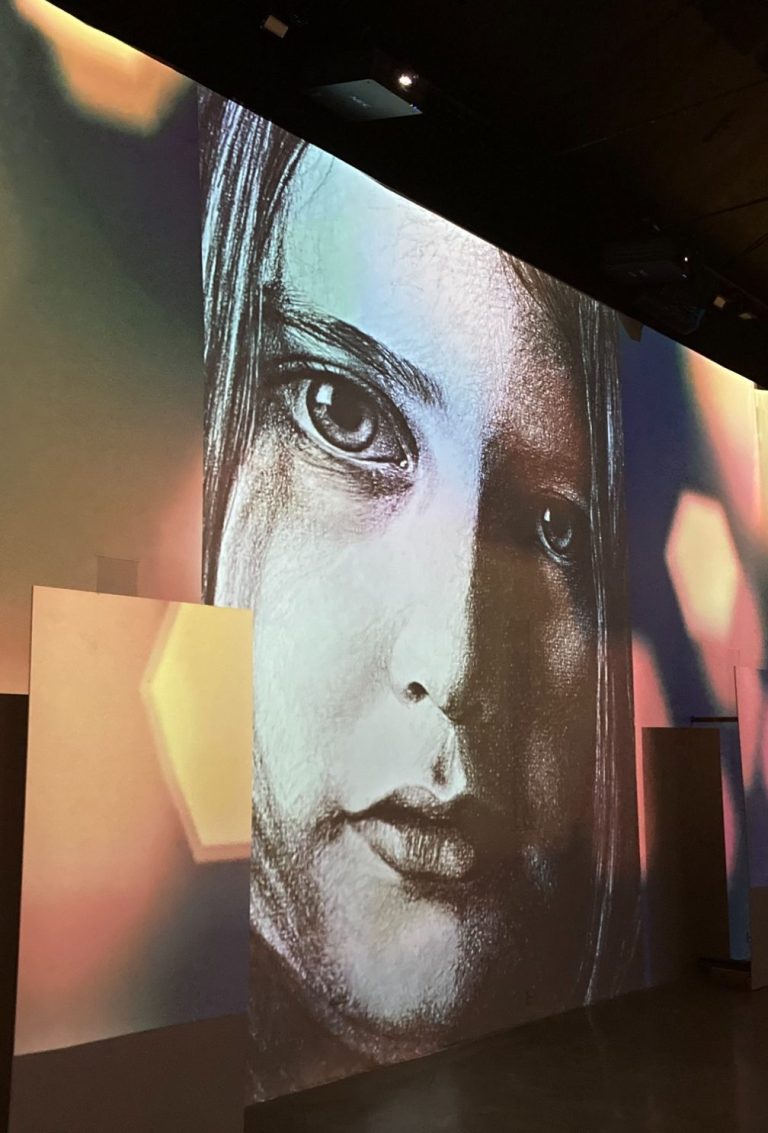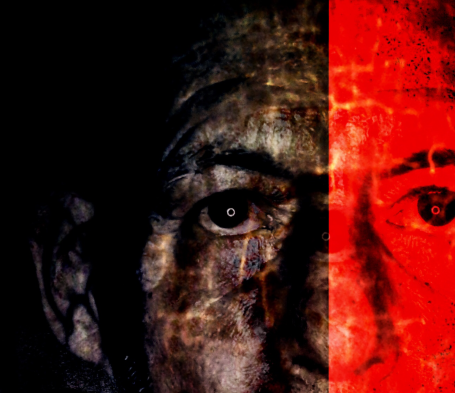Our Aims
Warhead Project UK aims to harness the power of the arts to address mental health challenges faced by veterans, military personnel and the wider community.
Through innovative exhibitions and creative workshops, we seek to inspire healing, foster emotional well-being, and promote recovery from trauma.
Our mission is to bridge the gap between mental health support and artistic expression, creating a space where those affected can explore their experiences and build resilience through the transformative power of creativity.
Jason Fearnley: I'm a UK military veteran who served with the Royal Navy Submarine Service from 1985 to 2008. I have been working with UK veterans for the past six years using creative activities to help treat invisible injuries.
Likes: Art, music and laughter
Dislikes: Injustice
Motto: "Never give up."
Meet the Team

Tommy Reid: In my early career, I worked as a street and event entertainer, collaborating with musicians and organisations like Glasgow City Council and Disney Club Edinburgh Playhouse. I also served as an ambassador for Glasgow City Council, representing the city in Nuremberg and Rostov on Don.
More recently, I founded the charity Eat Up and in 2018 the Kindlift CIC project, which provides furniture to individuals transitioning from homelessness to housing. I also lead Blueprint Imagine, a group focused on improving lifestyles.
With a BA (Hons) and MA in Psychology, Innovation, and Entrepreneurship, my goal is to contribute to meaningful change.
Likes: Travel, meeting people and a bacon roll.
Dislikes: A hubbub.
Motto: "Coming together is a beginning. Keeping together is progress. Working together is success."


Geoff Andrews: Ex Royal Navy Submariner.
Former International Exhibition Manager working in Russia & Eastern Europe. Former HGV 1 driver and now working in all aspects of healthcare and loving it.
Likes : Music , photography, reading (though I don’t do enough of it) and walking, with and without my dogs.
Dislikes: Self centred people - Arty Farty people.
Motto : “It’s Too Late to Stop Now.“

Joyce Mann: "As an RAFVR(T) veteran I have been privileged to work with so many amazing individuals and experience training opportunities that pushed me to my limits.
I have had a varied a career in business, education and youth management and training. I was director of a motorcycle courier company, a teacher and my last post was as the SO2 for the RN/RM Youth HQ. I currently volunteer at a dedicated activity centre for veterans in the community, where every day is a school day, different and always great fun."
Likes: Waking up to see what the new day will bring, family and good friends!
Dislikes: I don't have time for dislikes - if I don't like it, I don't do it / read it / eat it! However, I really don't like spiders !!!!!
Motto: Be happy! Smile and say hello to at least 1 person every day.
Warhead Project UK is a non-profit organisation dedicated to raising awareness of mental health issues, fostering resilience, and promoting healing through creative expression and meaningful connections. Founded by veterans, the project brings together the arts, history, and community engagement to create a platform for conversation and support, especially for those affected by the traumas of military service and life-altering experiences.
Our mission is rooted in the belief that creativity has the power to transform lives, and we aim to bridge the gap between mental health challenges and community support by hosting impactful events, exhibitions, and programs across the UK. By collaborating with artists, veterans, historians, and supporters, Warhead Project UK develops immersive experiences that encourage reflection, empathy, and understanding.

Morag Tester BA PSYCH, PG DIP CG, DN, PG Dip Chyp, Dip Hb:
I have worked as a Psychotherapist for a number of charities, the NHS and the Education Sector, lecturing at Strathclyde University, Glasgow and The University of West London.
Throughout my career I have worked to support people of all ages including veteran's, whose mental health has suffered because of PTSD, anxiety, depression, terminal illness & suicide.
Over the last 7 years I have had the privilege to work with many veterans across the West of Scotland.
Likes: The beauty of nature as it travels through the seasons, The power of a hug and the sound of laughter.
Dislikes : Cold Coffee
Motto: Look for and celebrate the little good moments of every day.

Mac McDade: A Royal Navy veteran, co-founder of Warhead Project UK, artist, tutor and creative producer with a passion for storytelling through visual art. Mac served onboard HMS Plymouth during the Falklands War and brings a unique perspective shaped by lived experience. He enjoys the outdoors, music, movies, good TV and photography.
Likes: Coffee, learning and dark chocolate.
Disllikes: Marzipan, bad driving and having cold feet.

The Inspiration
Jason Fearnley and Mac McDade, both Royal Navy veterans and active members of the veteran community, work as a woodcraft tutor and art tutor respectively. Every day, they witness firsthand the therapeutic power of creativity and the arts on mental health and wellbeing.
During a recent period of self-reflection, Jason began creating digital art to express his inner thoughts. The positive response to his work sparked the idea of an exhibition that would showcase artwork by veterans, highlighting the beneficial effects of creativity on mental health.
Mac, with a deep interest in art therapy and neuroarts, had already been creating pieces inspired by his personal experiences. When Jason shared his vision, Mac eagerly joined the project. Together, they developed the concept into the Warhead Exhibition, featuring original artworks—including paintings, digital art, and photography—enhanced by video and audio, all inspired by the lived experiences of veterans from the Armed Forces.
The exhibition invites viewers to explore how visual art can positively impact mental health and wellbeing. At its core, the veterans themselves—who embrace creativity as a tool for growth and healing—serve as the driving inspiration behind this transformative experience for all involved.


Emerging brain research proves what artists and art lovers have sensed all along: Art can make us feel better, happier, healthier, and smarter.
Depression, anxiety, angst, grief and loneliness: despite its frequent occurrence in people's lives and attempts to destigmatise mental health, we still find it difficult to discuss psychological distress, never more so than in the Armed Forces.
As a society we have relegated art to entertainment or an escape, a luxury of some kind. However, technology advances within the last 35 years or so have allowed us to have greater insight into how our brain works and how the arts and aesthetics affect us. The results are astounding.
The UK is among the countries that have moved further, faster, to activate use of the arts and aesthetic experiences to support health and wellbeing. Emerging brain research proves what artists and art lovers have sensed all along: Art can make us feel better, happier, healthier, and smarter. The arts and aesthetic experiences impact human biology and behaviour in ways that differ markedly from any other health intervention. The human brain is uniquely wired for art.



Our Armed Forces: The Current Situation
The UK Armed Forces Mental Health 2023/24 report provides a comprehensive overview of the mental health status of personnel. Key statistics include:
• General Mental Health: In 2023/24, 13.0% (1 in 8) of UK Armed Forces personnel sought help in military healthcare for mental health reasons, which remained stable compared to the previous year (13.2% in 2022/23).
• Specialist Mental Health Services: Only 2.0% (1 in 50) required specialist mental health services, a statistically significant decrease from the previous year’s 2.2%. This is lower than the rate observed in the UK general population.
• Common Disorders: Adjustment disorder and depressive episodes were the most common conditions treated by specialist mental health clinicians.
• Demographics:
• Mental health issues were more prevalent in females (24.8%) than males (11.6%).
• Rates were higher in RAF (14.9%) and Royal Navy (14.8%) personnel, and lower in the Royal Marines (6.4%).
• Older personnel (35-44 years) and those from mixed or white ethnic groups were more likely to seek care.
• Post-Traumatic Stress Disorder (PTSD): PTSD rates remained low at 0.2% (2 in 1,000 personnel), with a higher prevalence among those previously deployed in Iraq or Afghanistan.
• Comparisons to the UK General Population: Mental health rates in the Armed Forces were similar to the general population for general healthcare, but lower in terms of those requiring specialist mental health services.
These findings indicate both a sustained need for mental health services and a decrease in specialist referrals, likely due to new care pathways focusing on primary care interventions.
Watch the MOD video: UK Armed Forces Mental Health: Ratio ratios explained
We need your consent to load the translations
We use a third-party service to translate the website content that may collect data about your activity. Please review the details in the privacy policy and accept the service to view the translations.

